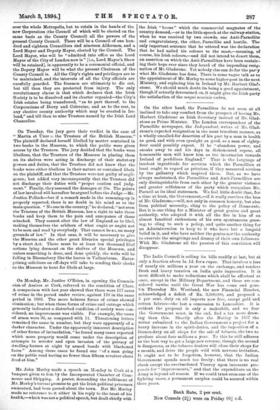On Tuesday, the jury gave their verdict in the case
of ." Martin et Uxor v. the Trustees of the British Museum." The plaintiff declared herself libelled by matter contained in two books in the Museum, to which the public were given access by the Trustees. The jury decided that the books were libellous, that the Trustees of the Museum in placing them -on its shelves were acting in discharge of their statutory powers and duties, that the Trustees did not know that the -books were either libellous in their nature or contained libels on the plaintiff, and that the Trustees were not guilty of negli- gence; but added very inconsequently that the Trustees did not discharge their duties with "proper caution and judg- ment." Finally, they assessed the damages at 20s. The points of law involved will hereafter be argued before the Judge —Mr. -Justice Pollock—but if a remark made in the summing-up is properly reported, there is no doubt in his mind as to the main question. "No one in the country," he declared, "not even -the Trustees of the British Museum, has a right to take these books and keep them to the pain and annoyance of those attacked. They cannot alter the law of England as to libel, making themselves the arbiters of what ought or ought not -to be seen and read by everybody. That cannot be so, on many grounds of law." In that case, it will be necessary to give the Museum and the other great libraries special privileges by a short Act. There must be at least ten thousand libel -actions lying dormant on the shelves of the Museum, and unless something is done, and done quickly, the writs will be falling in Bloomsbury like the leaves in Vallambrosa. Enter- prising solicitors on off-days will take to sending their clerks to the Museum to hunt for libels at large.






































 Previous page
Previous page